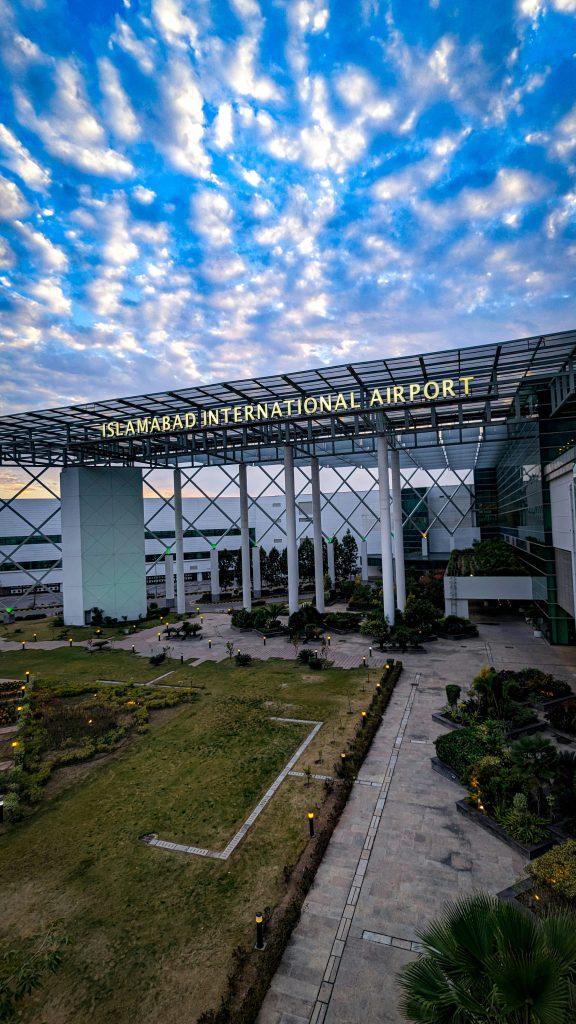RAWALPINDI – Although Pakistan’s airspace was officially reopened following the recent ceasefire with India, flight disruptions persisted across the country on Sunday, causing widespread inconvenience for thousands of domestic and international travellers.
Despite the lifting of airspace restrictions on Saturday evening, flight delays and cancellations remained a serious issue. Two major Gulf airlines had yet to resume their operations, further aggravating the situation.
Earlier, the Pakistan Airports Authority (PAA) had issued a NOTAM (Notice to Airmen), limiting airspace usage from 4am to 12pm on May 12. However, these restrictions were lifted by 6pm on Saturday, allowing limited domestic flights to restart.
According to data from Islamabad International Airport, 30 scheduled flights were cancelled on Sunday, including 25 operated by international airlines.

Similar flight disruptions were reported at Jinnah International Airport in Karachi and Allama Iqbal International Airport in Lahore, affecting both inbound and outbound passengers, including those on the Haj pilgrimage.
Smaller airports — including those in Multan, Peshawar, Quetta, Sialkot, and Faisalabad — also experienced operational setbacks. Some airlines were reported to have prioritised flights to Saudi Arabia for Haj pilgrims, contributing to delays and cancellations on domestic routes.
Although Pakistan International Airlines (PIA) and several private carriers resumed partial operations, travel interruptions continued. PIA confirmed that it operated 97 domestic and international flights on Sunday but acknowledged issues due to a large surge in passenger volume.
A spokesperson for PIA stated that the ongoing disruptions were linked to high passenger traffic and expressed hope that operations would normalise within the next two to three days.
Operational Challenges Behind Flight Disruptions
Aviation expert Qasir Ansari, a former senior executive with PIA, pointed out that multiple operational factors were responsible for the widespread flight cancellations and delays.
He emphasised that flight scheduling depends on synchronised management of aircraft availability, crew assignments, catering services, and destination clearances. Ansari noted that the sudden closure and reopening of airspace required foreign and private airlines to reorganise their logistics and resources.
Additionally, Ansari mentioned that some international carriers deploy crew based on destination-specific requirements, and many rely on Indian personnel. Due to current geopolitical sensitivities, airlines might be reassessing their use of Indian crew on Pakistan-bound flights.
However, he remained optimistic, suggesting that flight operations would likely stabilise within 72 hours once all foreign airlines resume services.
Passengers Face Financial and Emotional Strain
Many passengers were left stranded or forced to pay extra costs due to abrupt flight cancellations. Khalid Jilani, a businessman from Swat, shared his experience of being stuck in Kuala Lumpur following the airspace closure. He initially booked a Rs100,000 ticket for travel from China via Malaysia but had to buy another ticket for the same amount after his flight was cancelled.
“I’ve spent Rs5,000 per day on accommodation, and I’ve only been offered a Rs25,000 refund,” Jilani said, adding that he now had a confirmed PIA ticket to Islamabad for Tuesday.
In Lahore, Muhammad Imran, a Haj pilgrim from Sialkot, reported that his Haj flight had been delayed by over 17 hours. Originally scheduled for 2:30am, his flight was rescheduled multiple times and was eventually expected to depart at 9pm on Sunday.
“I left for Lahore after getting the new time, only to find out it was delayed again by 30 minutes,” he said, hoping for no further postponements.
Airlines Working to Accommodate Affected Travellers
Travel agent Fakhar Abbas confirmed that certain foreign airlines had suspended flights until May 11 but were now in the process of rebooking stranded passengers.
When asked about refunds for cancelled flights, Abbas explained that refund policies vary by airline. “Passengers with non-refundable tickets may not be eligible for refunds. However, those choosing not to travel with the same airline can request a refund according to the airline’s specific policy,” he clarified.